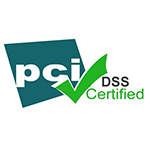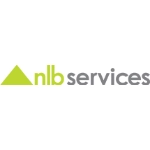© 2025 Next Level Business Services Inc. All Rights Reserved.
How to Make a Successful Career Change: A Comprehensive Guide
By NLB Services
Embarking on a career change may seem overwhelming, but it’s also a chance to align your professional life with your passions and goals. Many people crave change but don’t know where to start. This needs meticulous planning and consistent steps to get you to your desired profession as you switch careers. You will be surprised to know that 69% of Gen Z workers are dissatisfied with their work-life balance, while 20% of American workers would accept a pay cut for a better work-life balance, notes The Small Business Blog. If you are also looking for a career change but not sure where to start? You are at the right place.
This blog will offer a comprehensive guide to smoothly and confidently transition into a new career. Career switch involves multiple steps like evaluating your current situation, researching your possible career options, developing an adequate skill set, goal setting and plan of action, and how to consistently stick to the plan to get into your new profession as you make the big leap.
Self-Assessment and Reflection
Evaluate Your Current Situation
Before taking any big step, it is only natural to recognize where you stand, how you think about your current job, and what parts you like and dislike. Indeed reports that 79% of career changers seek better pay, but many also prioritize growth opportunities, feeling challenged, and having greater flexibility. Evaluate your current situation. Figure out what is working and what is not. Is it the salary, the work, is your skill set not aligning with what you are doing in your job or is it something else altogether? Having a clear picture will help you in making better decisions.
Identify Motivators and Priorities
The next step is to know what makes you push for a job change. Take the moment to reflect on what it is that you seek through the job change, is more salary your goal, more flexibility, better work-life balance, or a role that matches greatly with your values and skills? According to Indeed, 81% of workers planning a career change cite unhappiness in their current roles as a major factor, with many also looking for greater flexibility and better workplace culture. List out all the key points that you can think of and know the priorities and things that you can not negotiate with.
Research and Exploration
Explore Career Options
Once you have a clear picture in your mind and you feel ready to make the decision, it is only right to explore career options that best align with your goal. Use online resources, job portals, blogs, and career fairs, analyze job market trends, and workshops, and engage with professionals in fields that you are interested in. The more you delve into career exploration, the more you can gather information and expand your horizons.
Understand Job Requirements
As you gather the list of potential career options, you need to also take note of the required job requirements and skill set to get into the job or industry. Take a look at the job descriptions, skills, and qualifications. Understanding these job requirements enables you to identify the skill and qualification gap that needs to be filled to get there.
Skill Development
Identify Skill Gaps
After analyzing the potential job roles and requirements that you find best suited, it is time to compare them with your current skill set and experience. Identify the gaps in technical skills, certifications, and soft skills such as leadership and communication. Investing heavily in skill development to emerge as a preferred candidate for the role. Having the right transferable skill set can help loads when it comes to switching careers.
Learning and Training
As you start working on skill acquisition, you can start filling these gaps by focusing on learning and training and getting the right certifications to become eligible for the role. There are platforms like Coursera, Udemy, and LinkedIn Learning that offer a wide range of courses that you can take as per your availability and schedule. You can also participate in workshops for added knowledge and insights. To strengthen your chances for your next role, you can enroll in different volunteering projects or internships. You can also try and find some part-time jobs that help you gain relevant experience.
Action Plan and Goal Setting
Create an Action Plan
It is time to create a concrete action plan as you identify what you need to learn. Create a clear and detailed action plan. Break down the steps into actionable items and tasks and set realistic deadlines.
Break Down Steps
A great action plan must include milestones for completing courses, and internships, updating resumes, and engaging with professionals. You can go even beyond and write down smaller details for actionable items such as completing chapters, updating your resume on this date, meeting with someone, etc.
Personal Branding
Update Your Personal Brand
Having a personal brand has multiple benefits and companies look to people who have a robust profile. Revamp your LinkedIn profile, resume, and other professional platforms to sync them with your new career goals. You can update your internships and portfolios too. Creating a professional portfolio can give a good boost and can help the recruiters see that you are already aware of the know-how of the work.
Craft a Compelling Narrative
When it comes to making a career switch, it is important to build trust among the recruiters, they need to get the idea that you are genuinely passionate about the new role. It’s not just for the sake of anything. It’s crucial to make your resume and CV stand out by highlighting the skills and experiences that are most relevant to your new career. Focus on your previous and new skills and accomplishments that demonstrate your ability to succeed in this different field.
Networking and Professional Connections
Expand Your Network
A career switch is a journey that is not easy for many people, you can have multiple questions and doubts in your head and you would want to clear them with someone who is already in that industry. To know more about the industry, role, and challenges, focus on expanding your network. Expand your network by reaching out to professionals in your desired field through social media, events, and industry groups.
Seek Mentorship and Advice
Being connected with a mentor from your desired field can be a game changer. Find someone who has a similar or in-depth experience in the industry you aspire to be a part of. Through mentors, you can have some valuable advice, connect to the right key people, and help you avoid common mistakes.
Job Search and Application
Tailor Your Resume and Cover Letter
For any compelling job opportunity, a compelling resume is a must. Customize your cover letter and resume for every position. Make it stand out by highlighting the skills relevant to the job. Preparing for your first job position as you transition your career can be challenging. Your resume acts as your first impression for the recruiter.
Prepare for Interviews
The next step is to start the job search and prepare for interviews. In career change, you might have to explain why you’re making a change and how your past experiences are still relevant. To nail the interview, practice common interview questions, and technical questions and get ready to confidently share your career change story. Never be shy to show your enthusiasm for the new role and explain how your background equips you for success in this new role.
Maintaining Motivation and Resilience
Stay Focused and Positive
Career change can be a long and sometimes frustrating process. It’s crucial to stay focused on your goals and maintain a positive attitude throughout. Don’t forget to celebrate the small victories along the way and not get discouraged by setbacks. Remember, you are not the only one. Persistence and resilience are key to navigating a successful career transition.
Adapt and Learn
Be prepared to adapt and continuously learn as you start your career switch journey. The transition period might come with a steep learning curve, but embracing a growth mindset will help you thrive. Be open to feedback, new experiences, and challenges, and always look for ways to improve and grow in your new role.
Conclusion
Career transition is a big decision that needs meticulous planning and strategic execution. According to Zippia, over half of U.S. workers have considered making a career change, with significant numbers looking for more flexibility and better pay. Approximately 57% of employees cite financial insecurity as a primary barrier to changing careers. By evaluating your current situation, identifying your priorities, exploring new options, and creating a detailed action plan, you can successfully make a career change. Remember to update your personal brand, craft a compelling narrative, and expand your network to increase your chances of success. Stay focused, positive, and adaptable as you embark on this exciting journey. Taking the first step may seem intimidating, but with determination and strategic planning, you can achieve your career goals and find fulfillment in your new path.
Talent Solutions








